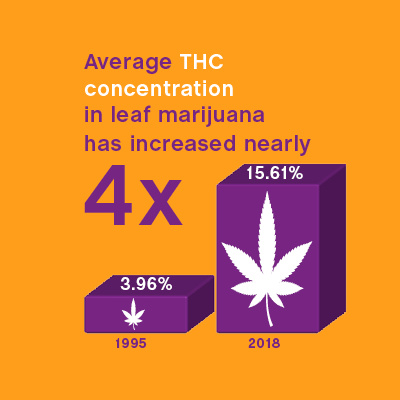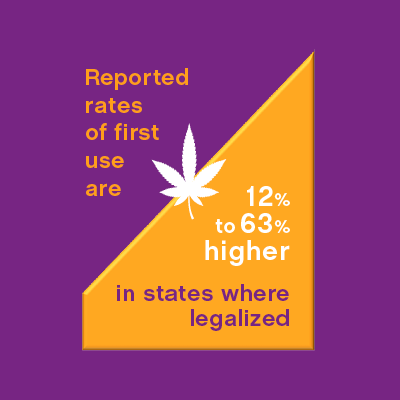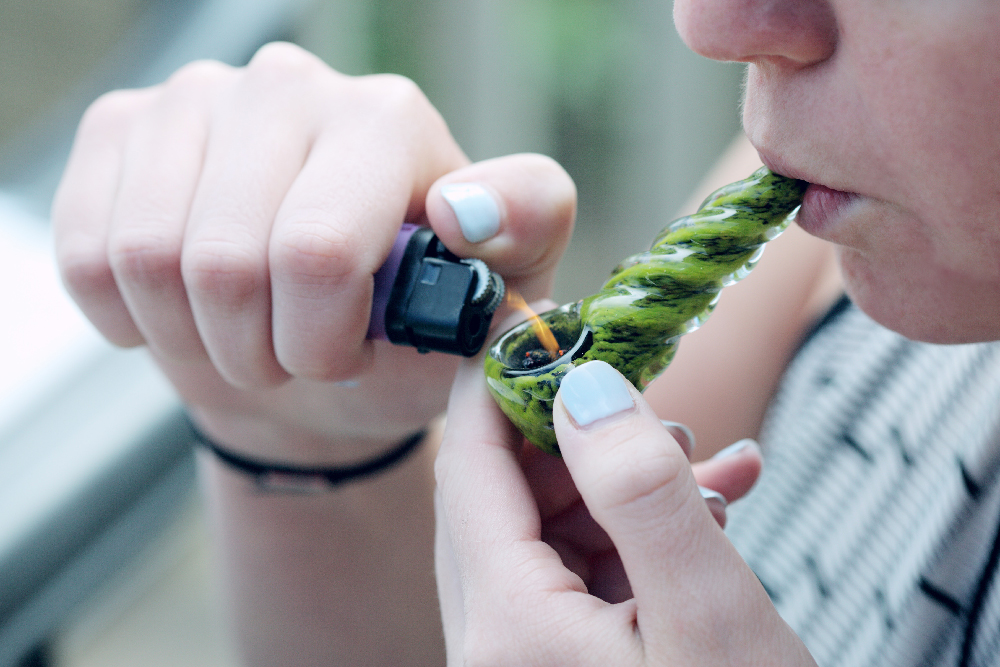With almost a decade since the legalization of recreational marijuana in Colorado, medical and mental health professionals in our state have a great deal of direct experience with the adverse effects of cannabis use on the adolescents and teens we work with.
What’s concerning is that we also see many parents who are still learning that the highly potent marijuana of today is very different from the cannabis of their youth.
Why is it important for parents to be aware?
While direct data doesn’t show a significant increase in cannabis use among young people overall since legalization in Colorado, there is a worrying combination of trends happening: Adolescents are first using marijuana at a younger age and the market is dominated by highly potent cannabis products, many of which may appear harmless, are easily accessible and tend to be consumed in larger quantities such as candy edibles. Add to this a worldwide mental health crisis in which a lot of people of all ages are self-medicating with drugs and alcohol.

Earlier this Month, Dr. Mark B. Johnson, president of the Colorado Medical Society, wrote about his concerns in the Colorado Sun:
“With over 20 years of experience now [since the legalization of medical marijuana in Colorado] we have learned that there is a risk of potential adverse effects from the use of marijuana. The most serious of these have to do with cognitive functioning and psychosis.
As I speak with my colleagues in emergency medicine, physicians are seeing what some of them consider to be an epidemic of acute transient psychotic symptoms in their patients who use marijuana, particularly adolescents. Research, too, has shown a dose-related increase in psychosis in adolescents using marijuana — meaning the more they use the worse the effects are — and a two-fold increase in psychosis associated with all cannabis users.

There is evidence that the earlier the use of marijuana begins, the more serious these cognitive effects and psychosis will be.”
The use of cannabis is associated with greater rates major depression, anxiety and antisocial personality, as well as substance use disorders among young people. According to the research, the younger individuals start using marijuana, and the more frequent the use, the more likely these issues will continue into adulthood.
A paper published on the Journal of the American Medical Association Network in 2019, reviewed the outcomes of 11 international studies and found that “cannabis use among adolescents is associated with a significant increased risk of depression and suicidality in adulthood.” The research authors acknowledged that cannabis use is only one factor contributing to mental health issues among young adults. However, with roughly 20.9% of adolescents in the United States reporting monthly marijuana use and 7% of high school seniors reporting daily or near-daily use, those numbers become magnified to impact a significant population of adults. These findings are consistent with brain research that shows the negative impact of cannabis on brain development and plasticity. During the adolescent and teen years the brain is more vulnerable to the adverse long-term effects of exposure to THC, or tetrahydrocannabinol, the compound in marijuana that produces the high sensation. It can cause structural damage, neuronal loss and impair brain function on a number of levels, from basic motor coordination to more complex tasks, such as the ability to plan, organize, solve problems, remember, make decisions and control behavior and emotions.
Although some argue that marijuana is not an addictive drug, according to the science “one in 10 people overall, and one in six adolescents, who use marijuana develop dependence or addiction.”
What can parents do to protect their children?
Education and communication are key. Parents should know the facts about marijuana and have frequent and honest conversations with their children from a young age about the risks involved with marijuana use.
Rather than taking a punitive or threatening approach, fostering trust and keeping lines of communication open during these conversations is important in any prevention efforts.
There are many resources that can help parents approach their adolescents or teens about the topic. Start by visiting the Partnership to End Addiction website and downloading the organization’s Marijuana Talk Kit.
If you know your child is using marijuana and are concerned about changes in their personality, behaviors, grades, etc., consider reaching out to your physician or a mental health professional for help.

